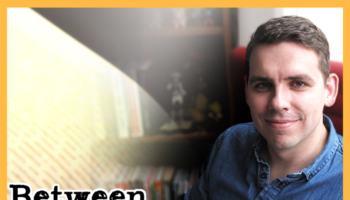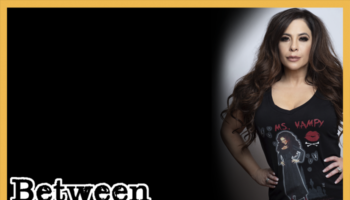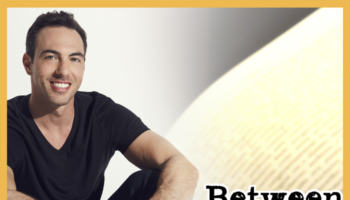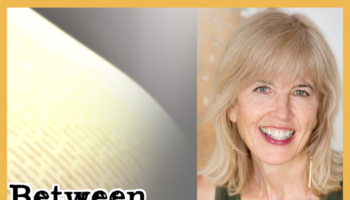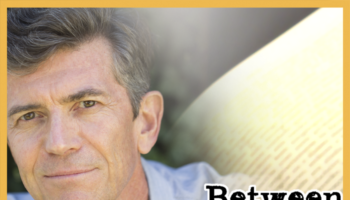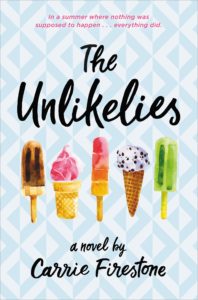 In our new feature, Between the Sheets, TrunkSpace picks the imaginative brains of authors to break down what it takes to create the various worlds and characters they breathe life into via the tools of their trade… sheets of paper. While technology continues to advance and change the pop culture landscape, the written word has remained one of the most consistent and imaginative art forms.
In our new feature, Between the Sheets, TrunkSpace picks the imaginative brains of authors to break down what it takes to create the various worlds and characters they breathe life into via the tools of their trade… sheets of paper. While technology continues to advance and change the pop culture landscape, the written word has remained one of the most consistent and imaginative art forms.
This time out we’re chatting with “The Unlikelies” author Carrie Firestone to discuss her thoughts on the YA genre, her soul-age, and how her characters inhabit her while they’re being written.
TrunkSpace: We read that your first manuscript was rejected based on initial queries and you ended up scrapping it. Do you think you’ll ever revisit that particular story or have you officially written it (no pun intended) off?
Firestone: I don’t think I’ll ever revisit the book as it is, but I’ve already harvested parts of the story for other books. I re-read it recently and it’s pretty rough!
TrunkSpace: Prior to pursuing writing full time, you were a teacher. When you turned your attention to your own writing, did you approach it as a student and try to learn as much as you could about the storytelling process and the business itself?
Firestone: I think I approached writing like I approached teaching. I jumped into teaching headfirst when I flew to Taiwan five days after college to teach English without knowing any Chinese (or how to teach). I eventually went back to school to hone my teaching skills. Similarly, I wrote the first novel, then began to attend conferences and research the business. I think teaching and writing are both professions that require a good amount of instinct combined with some dedicated craftwork.
TrunkSpace: Looking at lessons learned, what do you think is the most important thing aspiring writers need to consider outside of having a great concept/idea?
Firestone: I would definitely encourage writers to keep going with that great concept until they have a finished manuscript. We’re often seduced mid-draft by exciting new ideas. You can always scribble the new ideas in a notebook and return to them later. I know too many writers who have a drawer full of half-finished manuscripts and lots of “great ideas,” but no finished book.
TrunkSpace: YA is a term that is thrown around quite a bit these days and it seems the actual definition of it blurs based on who you ask. In your opinion, what does YA mean and who is the audience? (Not necessarily age demographic, but the profile of the reader.)
Firestone: To me, YA fiction explores universal human experiences just like any other fiction. The characters in YA books are often discovering who they are and how they fit into this world for the very first time. But YA books are for people who want to read about love and loss and fear and disappointment and self-discovery and pain and courage and adventure and all the things that make us human.
TrunkSpace: Your new book “The Unlikelies” focuses on five teens. What is the key to being able to write not only for teens, but, in the voice of teens? How do you capture that very specific time period in a young person’s life and make it reflective for the reader?
Firestone: I truly feel like my soul-age is 19. My daughter is 13 and I’m surrounded by teens, so I have access to the voice of the modern teen. But to capture the essence of this stage of development, I always remind myself that teens are people with a range of personality types, and experiences, and layers of complicated emotions. There is no such thing as a “typical” teen. I hope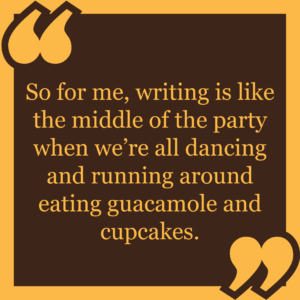 my characters illustrate that.
my characters illustrate that.
TrunkSpace: We saw that “The Unlikelies” was compared to “The Breakfast Club.” That was a film that completely shined a spotlight on various teen personalities of the 1980s. Have teens changed all that much since then when it really comes down to it?
Firestone: I was a teen in the 1980s and “The Breakfast Club” was one of my favorite movies. But while that movie and many others in the ‘80s portrayed teens as one-dimensional “types,” we were as complicated and multi-dimensional as teens are today. I don’t think teens have changed over the generations. Technology may give them more access to the world, for better or for worse, but my daughter and her friends are very much like we were in the glorious 80s.
TrunkSpace: You have a number of book signing events scheduled throughout the summer. As bookstores continue to disappear, how do you think that will impact the book business, particularly on the marketing side?
Firestone: Wow. That question makes me sad since I’ve spent much of my life in bookstores. I think the Internet has created an enormous collective of book lovers who share, reflect, discuss, and promote books organically. I hope we will always have bookstores, but I’m guessing there will be more creative ways to share stories and have access to authors via social media.
TrunkSpace: Regarding the process, is writing a labor of love for you or does it feel more like labor? Do you enjoy the process?
Firestone: I love writing. My high school journals are living proof that writing is therapeutic and cathartic. When I get an idea and can sit for hours uninterrupted as characters tap out their stories through my fingers, it’s pure magic. Editing, on the other hand, can be brutally slow and painful. I love planning and throwing parties. So for me, writing is like the middle of the party when we’re all dancing and running around eating guacamole and cupcakes. Before we know it, it’s 3 am and we have no idea where the hours went. Editing is the party clean up the next day. It needs to happen, but nobody likes cleaning jello off the carpet.
TrunkSpace: And what does that process look like? What are the ideal conditions for putting in a good day of writing?
Firestone: My perfect writing day goes like this: Drop off kids at school. Go to Barnes & Noble cafe. Talk to my buddies who hang out there every day. Grab a stack of books and read a bunch of first pages to get the creative juices flowing. Get a coffee. Move to the corner (tell my buddies not to let me talk). Start typing. Text a friend to come hang out for twenty minutes at noon. Back to writing. Leave at three with 5,000 words done!
TrunkSpace: Do you self-edit as you write?
Firestone: No. The characters don’t let me. They want to get their stories out and they’re kind of pushy. I literally feel like I don’t have much control over the story. I don’t know what’s coming. It really is as if the characters inhabit my body. So my first draft is always a grammatical mess. (The characters don’t seem to care about grammar).
TrunkSpace: Where are you the hardest on yourself as a writer?
Firestone: I’m hard on myself when I turn in a story to my editor and wake up in the middle of the night feeling like it wasn’t the best story it could be. I won’t read my book after it’s released because there will always be ways I could have made it better. That part sucks.
TrunkSpace: What are you working on now and what will people be able to read next?
Firestone: I’m working on a couple of projects aimed at inspiring young people to share their own acts of homegrown heroism (like “The Unlikelies”). I do a lot of community organizing work and would love to start an Unlikely Revolution. I’m also working on several new book ideas. Stay tuned!
“The Unlikelies” is available now from Little, Brown Books for Young Readers.


